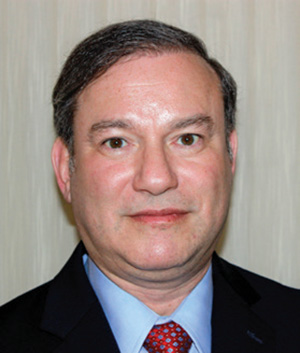
It is easy to give thanks to Hashem when all is going well. When we have plenty of money, are in good health and our family is getting along with one another, we can easily say, “Baruch Hashem.” However, it is more challenging to be grateful when times are tough and things are not going as well. Perhaps that is one of the hidden messages in the Chanukah celebration as well.
We are aware that Chanukah is a time when we celebrate our victory over the Syrian-Greeks who tried to forcibly assimilate the Jews into their culture. Fortunately, we defeated our foes and were able to be restored to our Jewish culture, rituals and heritage. As a result, we praise Hashem in our daily prayers by adding the Al Hanisim tefillah and adding Hallel in our morning prayers.
R’ Raphael Fuchs points out, however, that in the Al Hanisim prayer we thank God not only for the miracles, victories and salvations but also for the battles we have fought. Now we all know that the battles fought in war always involve casualties, pain and suffering. Why we would we be thankful for that as well? Wasn’t that the tragic part of the story that we would rather avoid talking about, much less be thankful for?
The Beit Halevi answers this difficulty by reminding us that when we experience salvation, even as individuals, we must be thankful not only for the way things turned out but also for the painful process we had to go through to get to the final point of success. This is a lesson we learn from the heroes of the Tanach as well. While things finally worked out well for King David, for Iyov and for Yosef, they had to endure many difficulties beforehand, for which they would also be thankful for.
The story is told in the Book of Shmuel 1:30 of how the Amalekites had invaded David’s hometown of Tziklag and burned it down while he and his troops had been engaged elsewhere. Not only had the Amalekites taken all of their possessions, they had also taken captive all the wives and children. Things looked very bleak. “David and the people who were with him raised their voices and cried until they had no more strength to weep.” (30:4)
The story does not end there, though. Surely, things looked bleak. David and his people had lost all of their possessions and all of their family members. The people even wanted to stone David (30:6). Instead of giving up, however, “David strengthened himself in the Lord, his God.” He took 400 of his best troops with him and attacked the Amelekites at dawn. He not only recovered everything that the Amelekites had taken away, he also took all of their flocks and herds as booty. Instead of wallowing in despair and giving up after a big tragedy, he regrouped, strengthened himself with Hashem at his side and came out even better than before. A few days later, he was crowned as the new king of Israel.
This lesson is also echoed in the book of Iyov (Job.) Iyov lost his fortune and his family. He was struck down with disease and misfortune. However, he famously said, “The Lord giveth and the Lord taketh, praised be His name.” He never lost faith. Hashem rewarded him in the end by not only restoring his fortunes but by giving Iyov twice as much as he had before.
Yosef was kidnaped, thrown into a pit and sold to a caravan of nomads. He was later falsely accused of sexually assaulting Mrs. Potiphar and spent 12 years in prison. Finally, his salvation came and he was elevated to the position of viceroy in Egypt. Yosef explained to his brothers in Parshat Vayigash that all that happened to him was predestined by Hashem. It was all meant to be so that the survival and sustenance of the Jewish people would be preordained. He was grateful for the suffering as well as for the positive way history eventually turned out.
As we celebrate Chanukah this week and as we pray the Al Hanisim prayer throughout the days, let us keep this lesson in mind. Let us be grateful for when things turn out well. But let us also appreciate the suffering that sometimes has to precede the favorable outcome. Like the mother who suffers the pain of childbirth but is grateful for having a healthy baby at the end, may we all be strengthened by our adversities and challenges in life. May we be restored and rebuilt, even stronger than before. That too is worth thanking Hashem for.
By Rabbi Dr. Avi Kuperberg
Rabbi Dr. Avi Kuperberg is a forensic, clinical psychologist in private practice. He is president of the Chai Riders Motorcycle Club of NY/NJ. He leads the Summit Avenue Shabbos Gemara shiur and minyan in Fair Lawn, NJ, and is a member of the International Rabbinical Society. He can be reached at Psychologist@Juno.Com.









